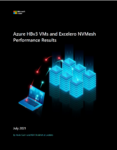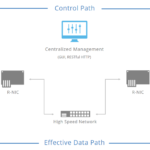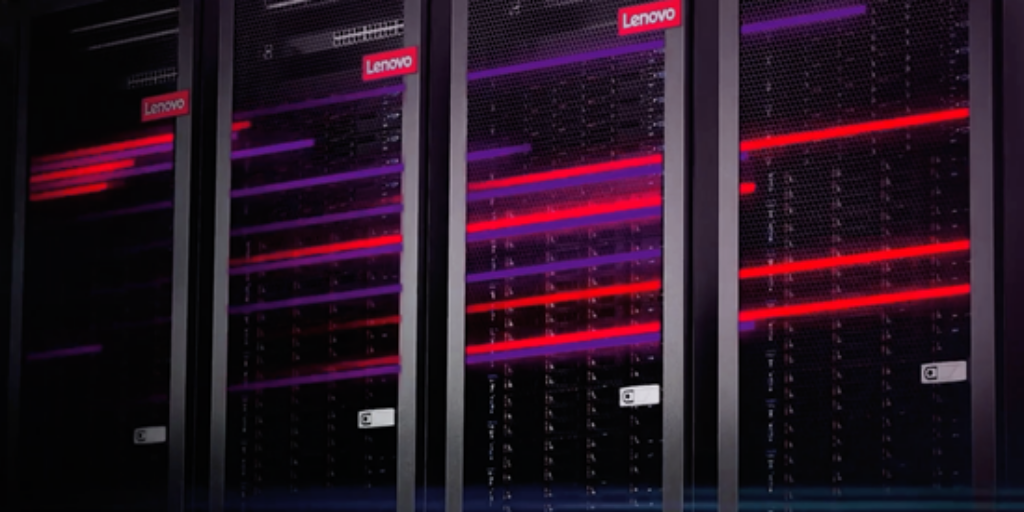[SPONSORED POST] Azure offers Virtual Machines (VMs) with local NVMe drives that deliver a tremendous amount of performance. These local NVMe drives are ephemeral, so if the VM fails or is deallocated, the data on the drives will no longer be available. Excelero NVMesh provides a means of protecting and sharing data on these drives, making their performance readily available, without risking data longevity. This eBook from Microsoft Azure and AMD in coordination with Excelero provides in-depth technical information about the performance and scalability of volumes generated on Azure HBv3 VMs with this software-defined-storage layer.
Azure HBv3 VMs and Excelero NVMesh Performance Results
Azure offers Virtual Machines (VMs) with local NVMe drives that deliver a tremendous amount of performance. These local NVMe drives are ephemeral, so if the VM fails or is deallocated, the data on the drives will no longer be available. Excelero NVMesh provides a means of protecting and sharing data on these drives, making their performance readily available, without risking data longevity. This eBook from Microsoft Azure and AMD in coordination with Excelero provides in-depth technical information about the performance and scalability of volumes generated on Azure HBv3 VMs with this software-defined-storage layer.
STFC Machine Learning Group Deploys Elastic NVMe Storage to Power GPU Servers
At SC19, Excelero announced that the Science and Technology Facilities Council (STFC) has deployed a new HPC architecture to support computationally intensive analysis including machine learning and AI-based workloads using the NVMesh elastic NVMe block storage solution. “Done in partnership with Boston Limited, the deployment is enabling researchers from STFC and the Alan Turing Institute to complete machine learning training tasks that formerly took three to four days, in just one hour – and other foundational scientific computations that researchers formerly could not perform.”
Excelero And Quanta Cloud Technology Streamline High-Performance Cloud Storage
Today Quanta Cloud Technology (QCT) and Excelero announced QxStor Excelero NVMesh, a High-Performance Cloud Storage joint solution that delivers the high IOPs performance capabilities of NVMe Flash at scale without the traditional storage bottlenecks. Targeted at HPC users, cloud service providers and web-scale organizations, QxStor Excelero NVMesh combines the QCT next-generation NVMe storage servers with Excelero’s NVMesh®software-defined block storage for shared NVMe at local performance.
Excelero Integrates NVMesh and BeeGFS for Accelerated I/O
Today Excelero and ThinkParQ announced benchmark results from their combined technologies for HPC, AI, ML, and analytics. “With Excelero’s NVMesh, our customers have access to an ultra-low latency, high performance approach to scale-out storage,” said Frank Herold, CEO of ThinkParQ. “We’ve been impressed with NVMesh’s ability to deliver the high IOPS and ultra-low latency of NVMe drives over the network with highly available volumes – as well as options for distributed erasure coding and BeeGFS’ unmatched ability to efficiently handle all kinds of access patterns and file sizes.”
Excelero Powers AI as a Service with Shared NVMe at InstaDeep
“InstaDeep offers a pioneering AI as a Service solution enabling organizations of any size to leverage the benefits of AI and Machine Learning without the time, costs and expertise required to run their own AI stacks. Excelero’s NVMesh, in turn, allows InstaDeep to access the low-latency, high-bandwidth performance that is essential for running customer AI and ML workloads efficiently – and gain the scalability vital to InstaDeep’s own rapid growth.”
Excelero NVMesh powers Canada’s new SciNet Petascale Storage Facility
Today Excelero announced that SciNet, Canada’s largest supercomputer center, has deployed Excelero’s NVMesh server SAN for the highly efficient, cost-effective storage behind a new supercomputer at the University of Toronto. “For SciNet, NVMesh is an extremely cost-effective method of achieving unheard-of burst buffer bandwidth,” said Dr. Daniel Gruner, chief technical officer, SciNet High Performance Computing Consortium. “By adding commodity flash drives and NVMesh software to compute nodes, and to a low-latency network fabric that was already provided for the supercomputer itself, NVMesh provides redundancy without impacting target CPUs. This enables standard servers to go beyond their usual role in acting as block targets – the servers now can also act as file servers.”







